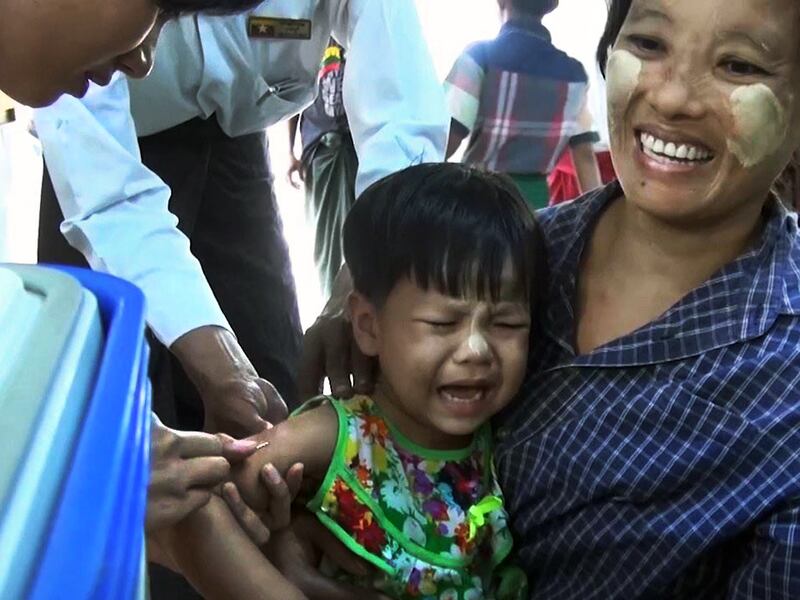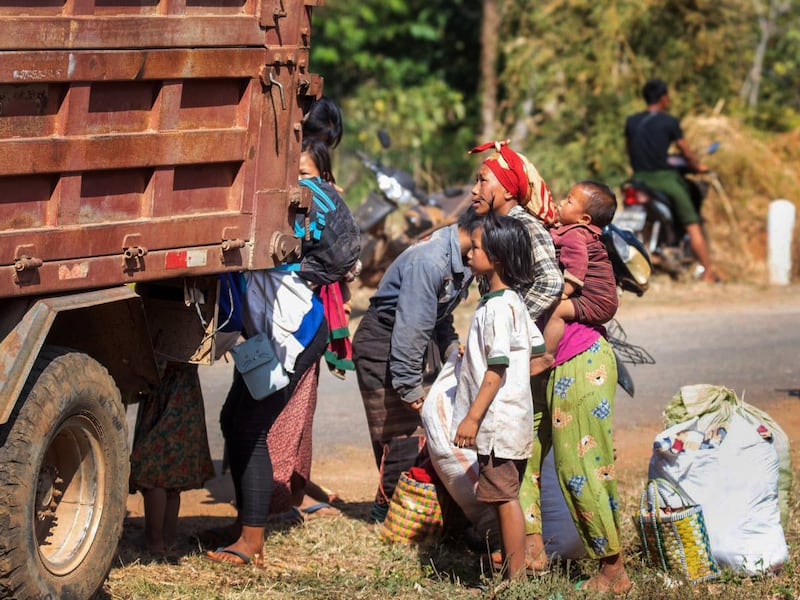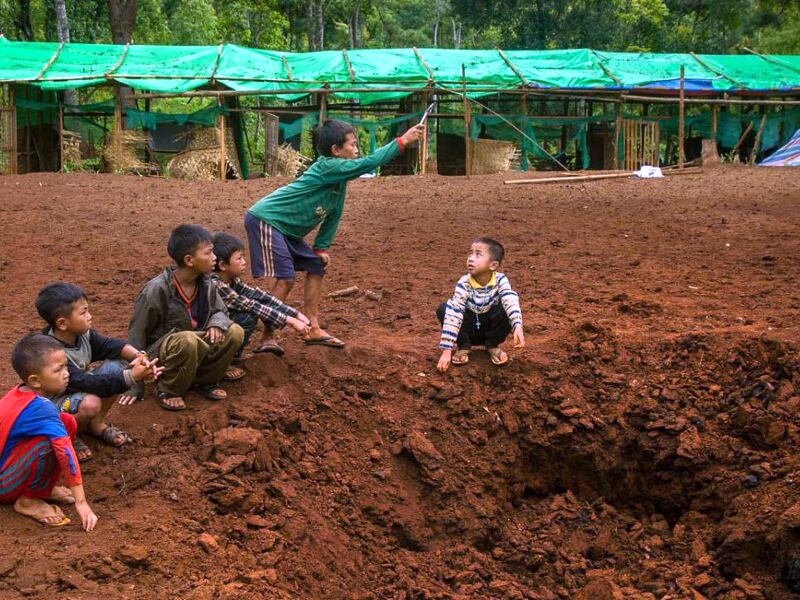Read RFA coverage of this story in Burmese.
Myanmar children nationwide are facing extreme shortages of food and medicine in areas under rebel control, leading to malnutrition and illness, aid workers and residents told Radio Free Asia.
Fighting between rebel groups and the Myanmar military has forced millions to flee airstrikes, village razings and gunfire, and has often left them without stable homes and sources of food since the military took power in 2021.
Junta forces have also imposed blockades on many parts of the country, preventing vulnerable populations from getting much-needed supplies.

“We have to eat hard and broken rice with vegetable curries, fishpaste and fried fishpaste, as well as gooseberries. These are common foods for the children,” said one woman declining to be named for security reasons who has been displaced for the last three years in Sagaing region’s Yinmabin township. Her two children are malnourished because they have to eat whatever food is available in the shortage.
“They frequently get sick because they’re malnourished, and have become pale and thin, in poor health. They also suffer from muscle stiffness.”
‘No food’
Internally displaced people number more than 3.5 million in Myanmar, of which children count for nearly one-third, according to the United Nations Children’s Fund, or UNICEF. According to a 2024 report, six million children in Myanmar are facing a worsening humanitarian situation.

For children sheltering at camps in Rakhine state in Myanmar’s west, where battles between the Arakan Army and junta have intensified, the food available doesn’t offer enough nutrition, said a member of the Mrauk-U Youths Association, declining to be named for fear of reprisals.
“There is no food at some internally displaced persons camps, not even enough rice for the children. In some families of five, only children are fed, and the mothers cannot eat,” they said. “However, the foods [available] lack sufficient nutrition.”
RELATED STORIES
International rights group calls out democracies for ignoring allies’ abuses
Kachin, Shan residents face hardships as China and Myanmar block trade
‘Nowhere to go’ say west Myanmar residents trapped by fighting
To Myanmar’s east, similar problems persist for the young, elderly and pregnant, said a midwife working in camps across Kayah and southern Shan state’s Demoso, Hpruso, Mobye and Pekon townships.
“Children under five, pregnant women and the elderly are the most vulnerable to malnutrition. Pregnant women are at risk of developing anemia,” she said. “It can negatively impact the health of the fetus.”
‘A huge problem’
But children are also at risk for long-term effects, like intellectual disability, stunted growth and even death, said a doctor declining to be named in order to speak with the media.
“Malnutrition will lead to bone disease first, such as bone deformity and rickets,” he said. “Malnutrition is a huge problem. It should be dealt with seriously. Otherwise, the mortality rate of newborns and children will increase.”
Attempts by RFA to contact junta spokesperson Maj. Gen. Zaw Min Tun for comment went unanswered.

Some areas have received aid in the form of food supplies for women and children as well as cash assistance for new mothers, said Naw Susanna Hla Hla Soe, Minister for Women, Youth and Children Affairs under the parallel exiled National Unity Government.
But as much as 70% of children are also missing out on vital vaccinations to prevent other types of disease in Sagaing region, said Phu Pwint Wai, head of the Aungnya Pyit Tine Htaung relief aid organization, adding that vaccinations for children have been suspended in Sagaing region.
According to a UNICEF report published in December, more than one million children nationwide have no access to essential vaccinations.
“Many newborns in rural areas lack access to vaccines at the appropriate ages,” Phu Pwint Wai said. “Children can only receive vaccinations in areas near towns where the junta has permitted access.”
Translated by Aung Naing. Edited by Kiana Duncan and Joshua Lipes.
